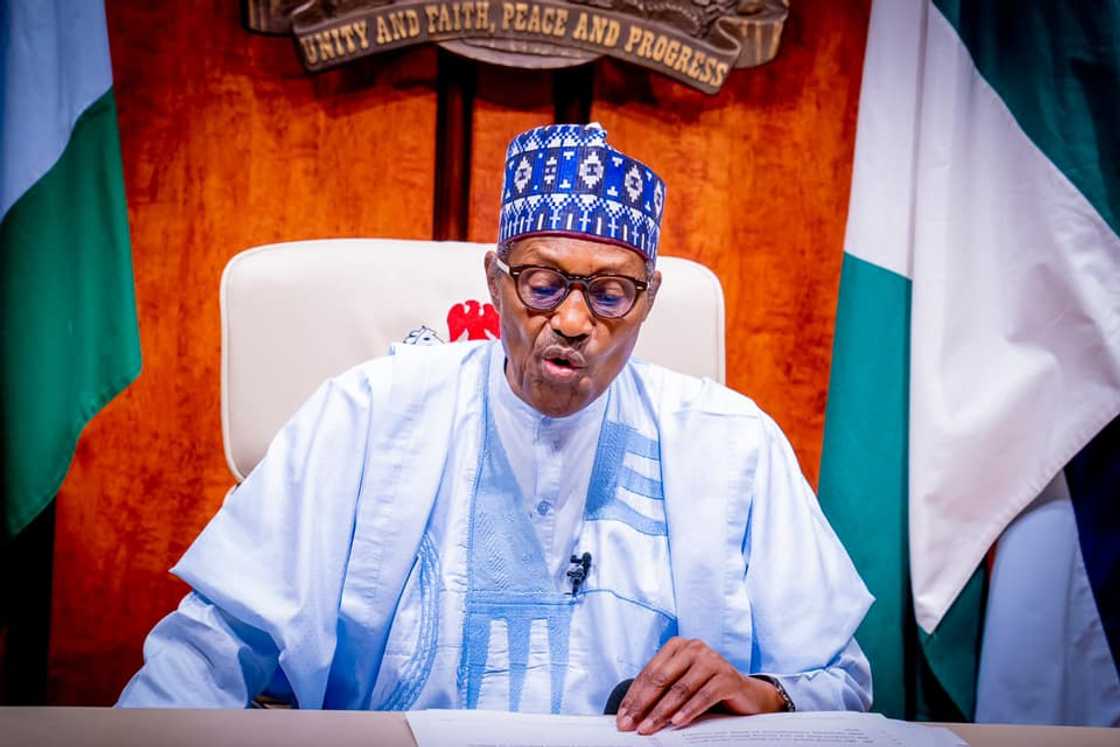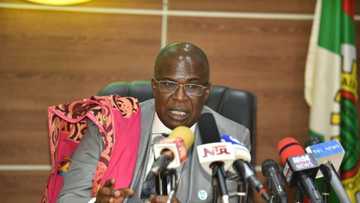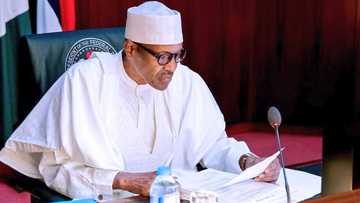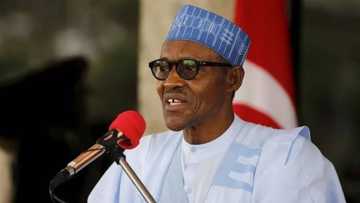PIA: Beyond Fanfare And Reservations By Mon-Charles Egbo
Editor's note: In this piece, Mon-Charles Egbo, the print media aide to Senator Ahmad Lawan, the president of Nigeria's 9th Senate, tracks the relevance of the Petroleum Industry Act (PIA), assented to by President Muhammadu Buhari, to the oil and gas industry.
At last, the tortuous journey to strengthen Nigeria’s oil and gas sector came to an end with President Muhammadu Buhari’s assent to the Petroleum Industry Bill, PIB thus transforming it to Petroleum Industry Act, PIA. But quite instructively, the spate of reactions that trail this development has diminished the ultimate intentions of the legislation. Nobody seems interested in knowing why in the first place, the need arose for the overhaul of the petroleum industry.

Source: Facebook
Nigeria is endowed with abundant oil wealth which also placed it among the largest suppliers of crude oil in Africa, yet it is battling with national development particularly when compared with its contemporaries. Worse still, Nigeria could not even satisfy the petroleum needs of her citizens let alone making profits from the sale of products and revenues from operators.
Again, corporate social responsibility is a statutory programme of business ventures who want to enjoy a harmonious relationship with the communities where they operate. The multinationals, oil and gas companies inclusive, are reputed for this globally. But sadly in Nigeria’s situation, the host communities have not had their fair shares. Just like Nigeria in this case, they have been roundly short-changed.
Furthermore, they are instigated against themselves in a divide-and-rule manner which in its wake births insecurity, vandalism and leakages, sabotage and oil theft that thrive in their domains, leading to a massive decline in production as well as government revenue, uncertain investment climate, loss of competitiveness and incessant fuel shortage.
Do you have a groundbreaking story you would like us to publish? Please reach us through info@corp.legit.ng!
These culminated in a threatened national economy and the absence of meaningful development.
However, the obsolete petroleum Act of 1969 supporting inadequate industry governance, weak sector regulation, and inefficiencies in oil operations was identified as the principal reasons thus necessitating the urgency of a legislative review.
Historically, efforts at reforming the petroleum industry began in 2000. President Obasanjo had set up the Oil and Gas Implementation Committee (OGIC), whose recommendations gave rise to the national 2004 oil policy. It was this report that metamorphosed to the petroleum industry bill (PIB) that was first introduced in 2008 by the Umaru Yar’adua administration.
Among others, the bill was aimed at expanding petroleum exploration and production, boosting domestic gas supply, making NNPC viable and productive, ensuring regulatory efficiency, as well as entrenching transparency and accountability in the industry.
In July 2012, then President Goodluck Jonathan’s administration revised and represented the PIB. The era was even defined by the emergence and circulation of adulterated versions which expectedly stalled efforts.
Then moved by the enormity of economic losses Nigeria continued to experience following the market and governance failures plaguing the oil and gas industry, President Buhari in October 2015, split the PIB into four separate bills namely: Petroleum Industry Governance Bill, Fiscal Regime Bill, Upstream and Midstream Administration Bill, Petroleum Host Communities Bill.

Read also
N380 per litre? FG takes final decision as governors, oil marketers recommend new price of petrol
The PIGB was proposed “to establish the Nigerian petroleum regulatory commission as a one-stop regulator that will be responsible for licensing, monitoring, supervising petroleum operations, as well as enforcing industry laws, regulations and standards”.
Hence it was prioritized and passed by the 8th national assembly. But due to the hostile relationship between the executive and the legislature, it was not assented to, even though “drafting errors” were cited as reasons.
The president of the Senate, Ahmad Lawan mobilized the 9th assembly to pay the topmost premium to the passage of PIB.
Guided by the identified causes of the setbacks the bill suffered since 2008, as well as the collaboration in governance strategy, Lawan hinted that “the National Assembly will this time around adopt a different approach to make the passage of the PIB a reality.
We want to see a situation where the Legislature and the Executive work very closely to have a PIB that will attract investment into the oil and gas sector in Nigeria.
We want to create an investment climate that will be competitive. We know some other countries have this product; therefore we have to be competitive. We have to create an environment where the businesses make profit.
This is a journey that involves everyone. We want both government – and that includes the legislature and executive – on the one hand and other relevant stakeholders in the sector, particularly the IOCs (International Oil Companies) to work together to ensure that this environment we are trying to create is an environment that will work for all of us”.
Elsewhere, he lamented that “in fact, if not because of COVID-19, PIB would have been in the assembly by now because we thought that whether it is one or two bills before we pass the next budget for 2021, we should have passed the PIB. Passage of the PIB or the assent to it or having the law to regulate the oil industry in Nigeria is so important to us as a country and to our economy because that is what will attract and sustain investments, especially foreign investments”.
In the end, the bill was passed and eventually accented to. Understandably, it attracted widespread fanfares and reservations.
Looking back at where and how it all began, especially what it took from the country, it indeed calls for celebration. Then conversely and weighing it against the expectations of the Niger-delta region, it is not a masterpiece after all.
The core area of misgiving is the well-being of the host communities who suffer the direct impacts of oil and gas production activities. The people of the Niger-Delta and for that matter, many Nigerians, resented the idea of allocating 3% (instead of 5%) of the petroleum profit share to the host communities’ development trust fund while approving 30% for exploration of areas where there are suspected oil existence or availability. Also, there is a concern about the ambiguity in integrating the oil-producing communities and the pipeline bearing communities. But as justifiable as these issues are, there is a silver lining at the end of the tunnel. Time only makes the difference.
Occasion calls for the objective ability to see things differently and to focus on the positive side of every situation. May we dispassionately look for what the legislation broadly holds for the economy.
At least for the first time, there is a framework that delivers socio-economic dividends directly to the communities, particularly based on what they need and how they want it delivered, unlike the previous approaches where interventions were determined without the inputs of the ultimate beneficiaries.
Also, it is simple logic that if there are no investments there will be nothing to share, or better still, if the fortunes of the oil companies improve, there will certainly be opportunities for improvement in their obligations to the communities. Otherwise, if we impose what would be difficult or impossible for them to pay, there would be friction which in the end undermines the target goals and objectives.
So it is rather appropriate to seek to exploit the inherent benefits of the legislation particularly in the areas of foreign direct investments and wealth creation through a viable rural economy. And apart from the dividends accruable to the communities, the overall government revenue is to be shared among the tiers of governments for developmental activities.
And above all, further amendments to this Act are possible in due course. It will be recalled that the Finance Act was amended three months later. So what matters now is to have a veritable foundation for future improvements especially as ‘grey areas’ have already been identified.
Therefore rather than dwell on negative sentiments, the people of the Niger Delta are to be cautious of those who might offer themselves as tacit collaborators towards short-changing the region again.
This is very imperative considering the humongous past investments through the Niger-Delta Development Commission, NDDC, and the 13% Derivation Fund among others, which unfortunately produced minimal results. Primarily for pragmatism and prudence, attention should be focused on the make-up of the board of trustees that would administer the development fund.
Then on the flip side, it is not just about laws but the will to implement them faithfully. As such, the government should begin to appeal to the consciousness of Nigerians on the need to be patient and patriotic, through good governance, transparency and empathy.
Governments at all levels should realize that it is routine to do things that benefit the masses and also that it is the lopsided distribution of national resources that propagate the trust deficit and other tendencies that undermine the stability of the country.
Probity, accountability and transparency among others which this legislation seeks to offer can only be achieved if every tier and arm of government does what is right. Hence, in this case, deliberate efforts should be made in ensuring that the narratives change for good.
Thankfully, Ahmad Lawan in acknowledging these had announced that “we passed the PIB. But what is important is for the National Assembly to continue to track, monitor and supervise implementation of the PIB when it is eventually assented to by the President and the execution starts.
This is because this is a 319 clause legislation and it is so sensitive, so central to our economy and lives of the people, particularly the host communities in the Niger Delta, in oil-producing states.
So we need to devote sufficient time to ensuring that the implementation, especially in the Host Communities Fund is done in such a way that what we think and anticipate will happen in host communities happens. Otherwise, we have to come back and see where the flaws will be.”
On the part of the executive, the petroleum minister of state, Timipriye Sylva explained that “everything has been done in the national interest and in the interest of Nigeria….There are lots of parts to it: community, government, industry, everybody’s interest has to be accommodated.
We have been able to take a lot of interests on board. Not everybody will be on the same page. There’s no way government and private sector will be on the same page 100 per cent, but what we have tried to do is to narrow the gap as much as possible.”
Meanwhile and despite whatever shortcomings, the breakthrough recorded in this legislation underscores the benefits of collaboration in governance.
Perhaps, the part of the PIB that was passed by the 8th national assembly could have either facilitated the processes for tackling or even addressed most of these prevailing concerns, had it been assented to. And quite significantly, this strategy drives the glimpses of success of this administration that are aggregating towards something tangible.
However and in the national interest, the big question remains: beyond the fanfare and reservations trailing the PIA, is there any prospect for national development?
Disclaimer: The views and opinions expressed here are those of the author and do not necessarily reflect the official policy or position of Legit.ng. Read more: https://www.legit.ng/1430274-on-nitda-bill-kashifus-integrity-by-abdulsalam-mahmud.html
Your own opinion articles are welcome at info@corp.legit.ng— drop an email telling us what you want to write about and why. More details in Legit.ng’s step-by-step guide for guest contributors.
Contact us if you have any feedback, suggestions, complaints, or compliments.
Source: Legit.ng









